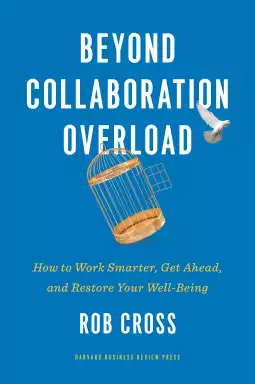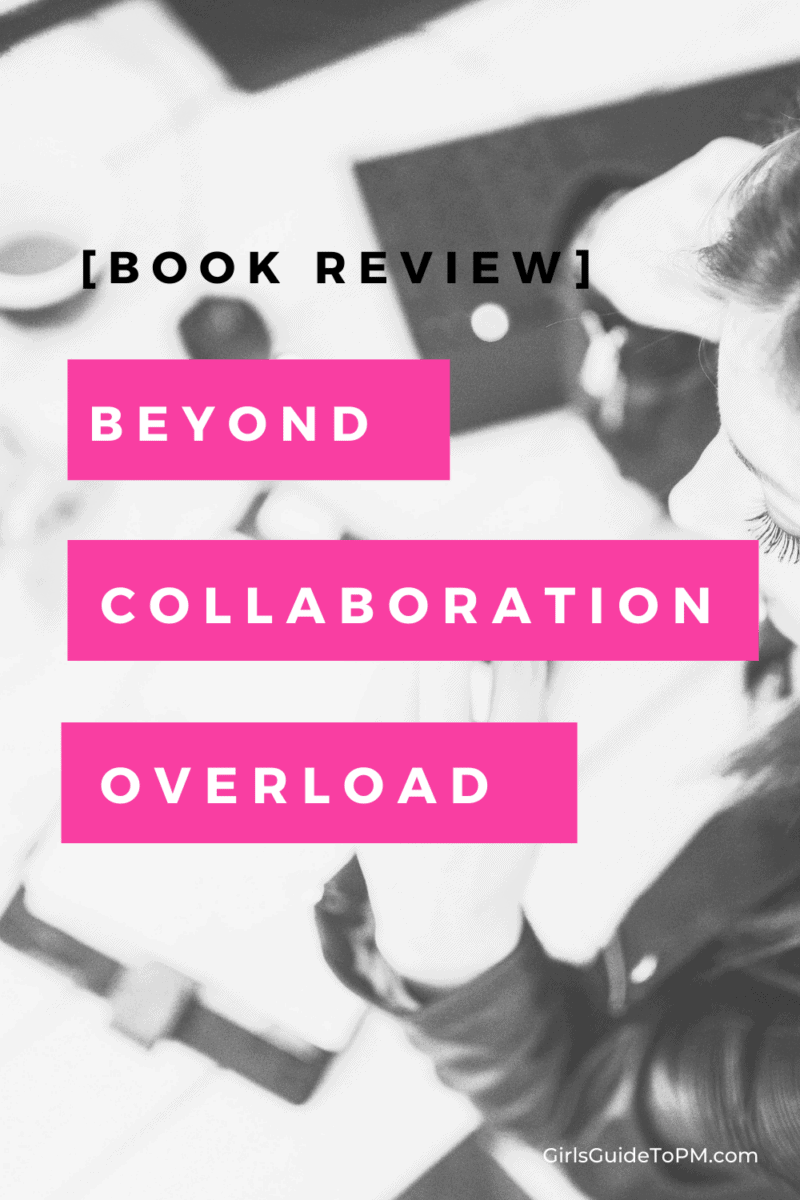Beyond Collaboration Overload (Book Review)
This blog is reader-supported. When you purchase something through an affiliate link on this site, I may earn some coffee money. Thanks! Learn more.
Read our review guidelines.
Beyond Collaboration Overload by Rob Cross is the book that will change how you think about working with others.
Everyone expects us to collaborate, all the time. Team structures are flatter; teams are self-managing. Being good at collaborating is just part of the job. Except no one teaches how to do it well.
This book is not a guide to how to collaborate efficiently. It’s a book about how to collaborate less. But more intentionally. It talks about how to know when it’s your choice to make a decision, and when you don’t need to involve anyone else.

The book presents a research study by Connected Commons, a business consortium of over 70 leading organizations, and it shows that stress, burnout, and disengagement happen because of too much collaboration. Yes, you read that right. You’re performing less well because you’re collaborating too much.
It makes sense. Teams wait until everyone has had their say before making a decision, which slows down project work. We collaborate too quickly before people have had a chance to reflect on the data. The collaboration effort itself is unproductive because often the individuals involved haven’t had any training on how to facilitate well.
The book provides strategies for reclaiming your collaboration time and making it more relevant and productive by Building a network and real connections and energizing others.
It includes tests and exercises (“coaching breaks”) for you to reflect on your collaboration experiences and build better ones in the future by becoming more aware of ways of working and preferences.
Key takeaways
For me, the key takeaway was to collaborate less and to not worry about taking decisions. I have a naturally very inclusive and collaborative style, so that is a bit of a wake-up call for me. In my own business, I have no issue taking decisions and getting things moving, but when I lead projects, I definitely default to a servant leadership ‘team is the expert’ way of looking at challenges.
And I still fundamentally believe that is right in a project setting. The lesson for me is in how to make that collaborative activity effective and efficient and not a drain on anyone else.
Another takeaway was to facilitate other people collaborating without me. We have just taken on new people at work and it is odd to know they are talking to each other whereas in the past everything went through me. As the team grows, I can’t be in that role anymore. I can’t be a blocker.
The final point I wanted to mention as a takeaway was the value of trust. It’s really important if you want and expect people to either be empowered to take decisions or to collaborate without you. The book talks about creating a trusted working environment, which is important for any kind of team.
Other thoughts
The book takes a fairly neurotypical view of collaboration experiences, but it does at least recognize that personal productivity is only half the problem: the faster we work, the more tasks come back to us when other people have finished their part.
There is quite a lot on building a network but much of that did not seem relevant to project work – the book is well-researched and interesting, but the networking sections felt like they were aimed at project sponsors or those in operational team leader roles who were trying to effect change, not the project managers. There is, however, a range of good ideas about how to build an internal network without it sucking up all your time – and that’s a useful skill to have for anyone in any kind of corporate or team environment.
Conclusion
The big idea behind the book is that you will win back some time by becoming more efficient in the way you work and then you can invest that time in doing a great job and improving your well-being.
I can get behind that.
Beyond Collaboration Overload is a good read for anyone who feels that their team engagements are a massive time suck and that they are constantly the bottleneck in getting things done. If you are feeling like all the conversations and micro-engagements with your colleagues are weighing you down, then this book will give you permission to change the way you work.
Beyond Collaboration Overload by Rob Cross shares how to work smarter, get ahead, and restore your well-being.
Pin for later reading:

